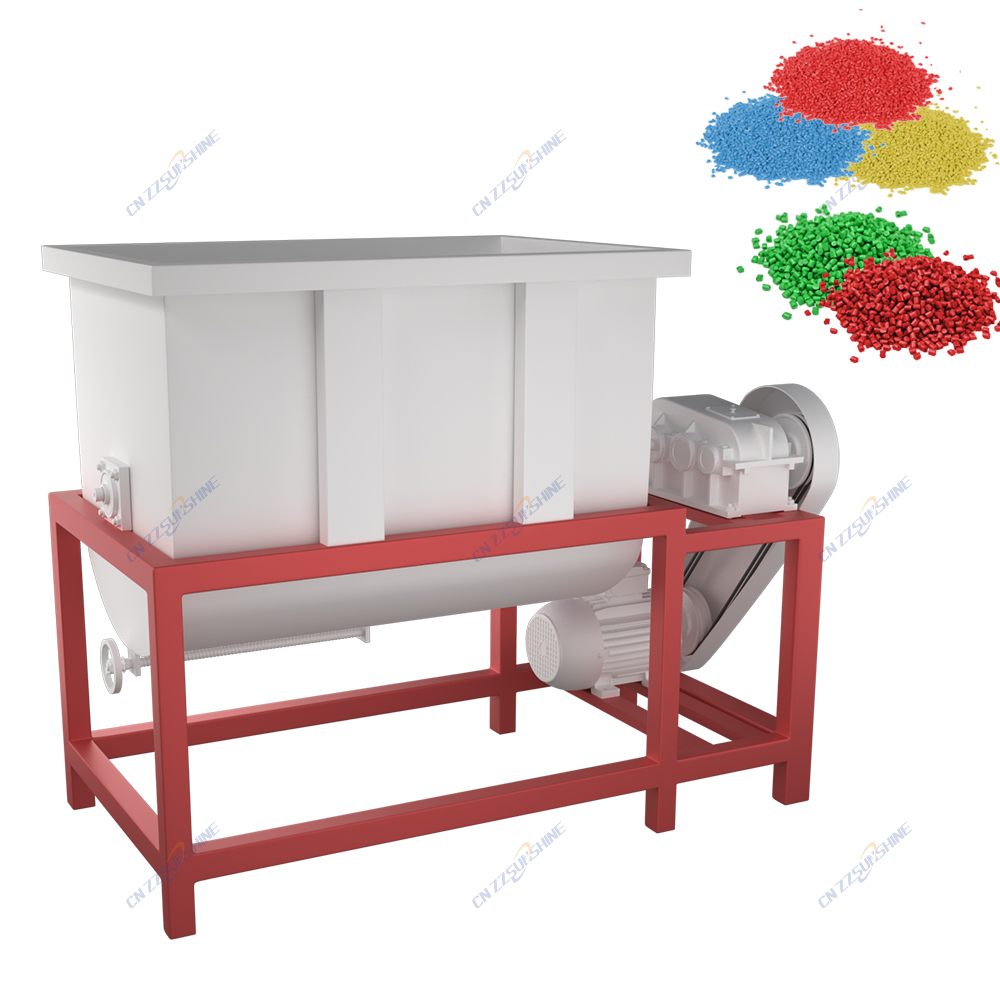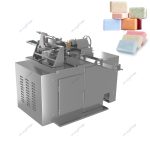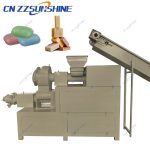Modern soap manufacturers face relentless pressure to boost output while maintaining uncompromising quality. Investing in a fully integrated automatic soap production line revolutionizes this process, merging precision engineering with streamlined operations. Unlike fragmented equipment setups, these unified systems synchronize every critical phase—from raw material blending to finished bar packaging—eliminating bottlenecks that plague manual workflows.
At the heart of the line, industrial mixers for chemical processing ensure homogeneous compound integration. Operators precisely control temperature and shear rates to achieve optimal saponification, whether crafting moisturizing beauty bars or heavy-duty laundry variants. The mixture then advances to refining stages, where a three-roller mill for cosmetics-grade applications smoothens textures. For high-volume operations, a vacuum plodder extrudes deaerated soap noodles under controlled pressure, preventing air pockets that cause brittleness.
Downstream, custom soap cutting machines deliver remarkable versatility. Electric washing soap cutters handle dense laundry bar formats, while pneumatic guillotine models adapt to delicate bath soap dimensions. Crucially, automated transfer mechanisms feed bars directly into stamping or wrapping modules without human handling—reducing contamination risks. Modern PLC interfaces allow rapid changeovers between laundry soap making lines and toilet soap finishing configurations using the same infrastructure.
Beyond throughput gains, these systems offer compelling ROI. Energy-efficient servo motors cut power consumption by up to 40% versus legacy setups. Closed-loop water recycling in cooling tunnels minimizes waste. Moreover, modular designs let manufacturers scale capacity incrementally—adding secondary vacuum plodders or automated packing machines for food-compliant wrappers as demand grows.
Leading suppliers now provide turnkey solutions encompassing dust extraction, industrial chillers for machinery cooling, and CIP (clean-in-place) systems. When selecting partners, prioritize vendors offering OEM three-roller grinding mill components and responsive technical support. Verify certifications for GMP compliance, especially for beauty soap making lines targeting premium markets.
For factories seeking to dominate competitive sectors—from private-label bath products to industrial laundry bars—automation isn’t optional. It’s the strategic lever ensuring consistent quality, lowering per-unit costs, and future-proofing operations against labor shortages. The transformation begins with a single-step assessment: audit your current downtime losses, then calculate the production surge achievable with synchronized automation.





